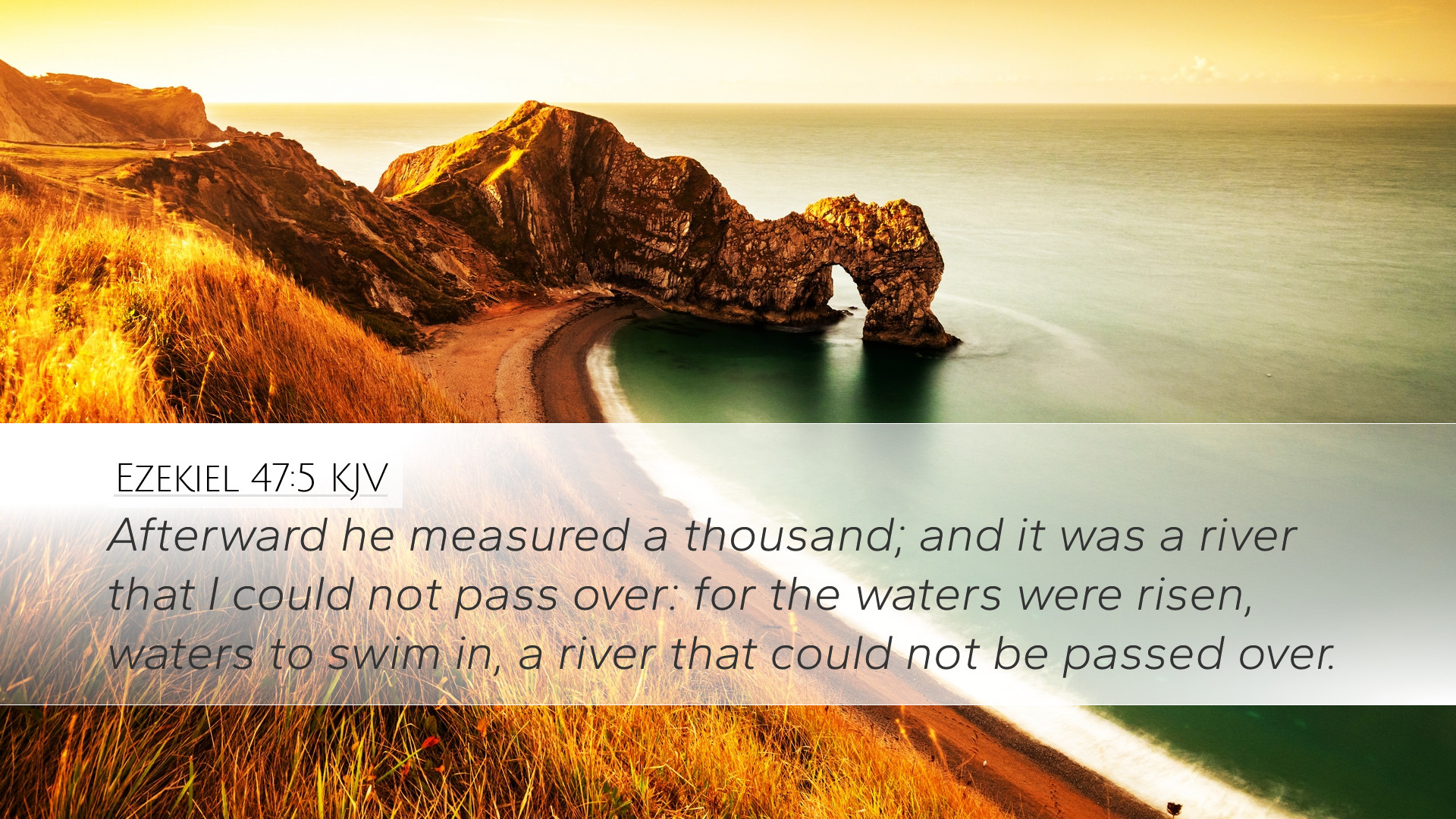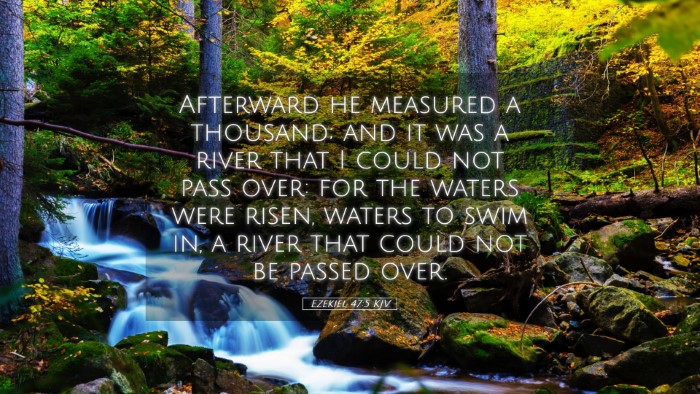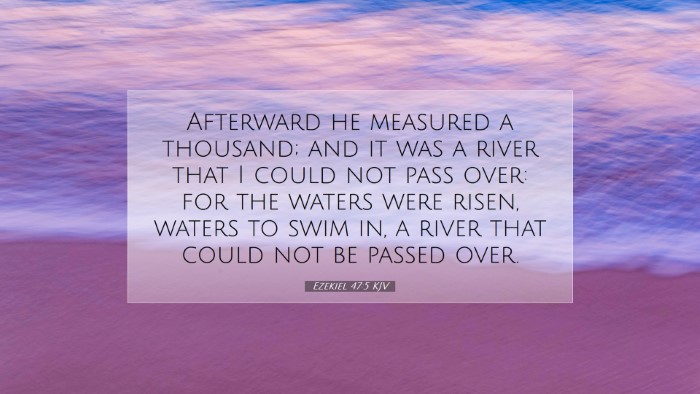Ezekiel 47:5 - Commentary Summary
Verse: Ezekiel 47:5 - "Afterward he measured a thousand; and it was a river that I could not pass over; for the waters were risen, waters to swim in, a river that could not be passed over."
Introduction
This verse serves as a pivotal moment in Ezekiel's vision of the future temple and the life-giving river that flows from it. As we explore this verse, it is crucial to consider the context of Ezekiel's prophetic ministry and the symbolism inherent in the imagery presented.
Contextual Overview
The vision in Ezekiel 47 occurs in the latter chapters of the prophecy, wherein Ezekiel focuses on the restoration of Israel. This chapter describes the healing waters flowing from the threshold of the temple, symbolizing spiritual renewal and the flow of divine grace. The measurement of the waters signifies both a literal and metaphorical depth to the blessings of God.
Commentary Insights
The following insights are drawn from public domain commentaries to enrich our understanding of Ezekiel 47:5:
Matthew Henry's Commentary
Matthew Henry emphasizes the significant transition from the temple's physical structure to the life-giving essence it represents. The river that Ezekiel describes becomes deeper with each measurement, symbolizing the growing influence of divine grace. Henry notes that while the initial water was merely enough to wet the feet, it grew to a depth where one could swim, demonstrating the inexhaustible nature of God's blessings.
Albert Barnes' Notes on the Bible
Albert Barnes provides a detailed examination of the implications of the measurements. He points out that the progression from the ankle-deep water to water deep enough to swim in indicates a transition from a novice understanding of divine reality to a mature engagement with it. Barnes highlights that this river is not just about physical water but serves as a metaphor for the Holy Spirit's work in the believer's life, drawing them into deeper communion with God.
Adam Clarke's Commentary
Adam Clarke elaborates on the profound nature of this river as a representation of heavenly blessings. Clarke writes that the depth of the river illustrates the abundance of grace and the overwhelming love of God. He notes that the phrase "could not be passed over" alludes to the incomprehensibility of God’s gifts, illustrating that human understanding has limits while divine grace knows no boundaries.
Symbolism of the River
Throughout Scripture, water serves as a powerful symbol of life, cleansing, and the Holy Spirit. In Ezekiel's vision, the river becomes a multi-layered representation of:
- Life: As a source of sustenance for both nature and souls.
- Healing: The waters bring healing to the land, illustrating God's restorative power.
- Abundance: The deepening water signifies the boundless grace and spiritual treasures available to believers.
Theological Implications
The text challenges readers to reflect on their relationship with God:
- Progression in Faith: Like Ezekiel's measurements, the journey of faith involves moving from shallow understandings to profound depths of relationship with God.
- Community Transformation: The image of the river brings the promise of revitalization not only to individuals but also to communities, as they come into contact with God's grace.
- Hope of Restoration: Within the broader context of Ezekiel, this passage signifies the hope of restoration for Israel and the promise of a new covenant.
Conclusion
Ezekiel 47:5 stands as a vivid reminder of the richness of God's provision through His Spirit. The metaphor of flowing water challenges believers to seek deeper waters in their spiritual lives. This verse encapsulates the promise of life, healing, and restoration that comes through an encounter with God.
As pastors, students, theologians, and scholars reflect upon this passage, it encourages them to not merely dip their toes in but to dive deeply into the river of divine grace. It is an invitation to experience the fullness of life that comes from being in communion with the Creator.


